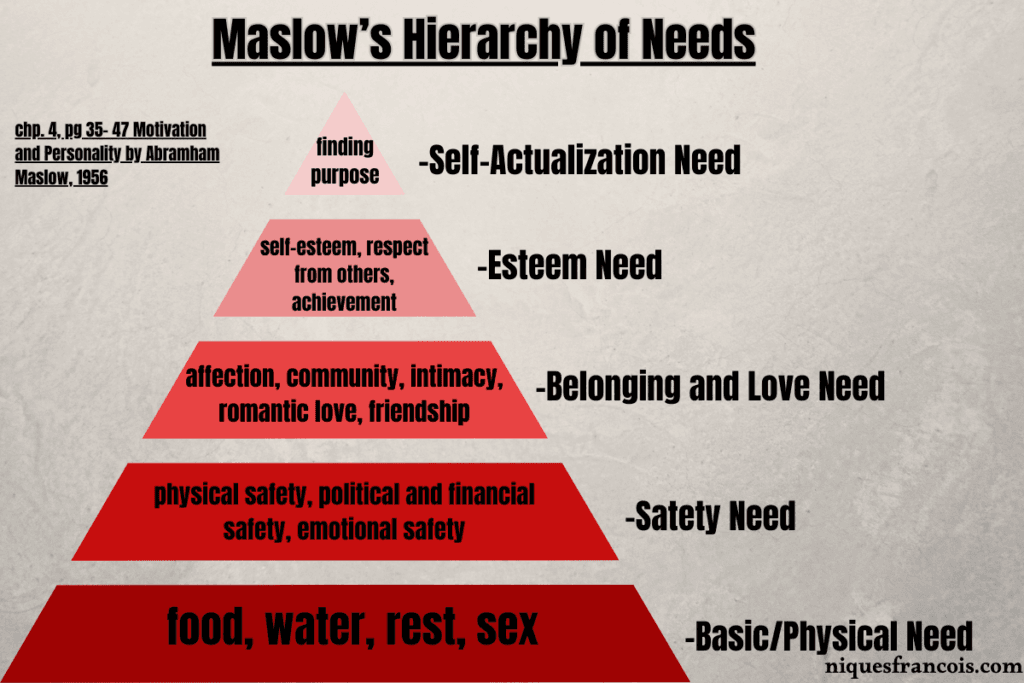Short answer yes, long answer also yes. Everyone is manipulative. Everyone is either subconsciously or unconsciously striving to obtain what they need. At baseline, every human being is selfish. It becomes a life’s work to overcome that selfishness so we can exist in harmony with others.
Understanding that everyone is manipulative to some extent saves us a lot of time and trouble. We no longer have to ponder about the self-centredness of children or the greediness of your boss. Everyone is just trying to survive and the way we survive is by meeting our needs.
We are all selfish
As children, we are taught to satisfy our basic physical needs. You learn how to eat when you’re hungry, rest when you’re tired and clothe yourself when you’re cold. From the moment we exit our mother’s womb, we begin yelling, crying for comfort and for food; screaming until someone hears us. We are born with the instinctive nature to manipulate a situation to get what we want. Cry=food.
For most of us, as we grow we learn how to curtail our manipulative ways. We learn how to sacrifice our immediate wants and needs for the good of those around us. We become less selfish (some of us). However, that doesn’t mean that we’ve given up our manipulating ways entirely. Our wants and needs may be different as we age but the underlying principle remains the same. We want what we want and we’re always trying to manipulate things or people to obtain happiness.
Manipulation is about trying to get what you want without directly saying what you want. We sometimes feel the need to bribe, finesse, taunt or threaten to have our needs fulfilled. This can be as simple as pretending you like your new boss to get a promotion or saying nice things to your wife to get sex. Consciously or subconsciously we sometimes behave in a certain way to get a response that will fulfil our desire. There is a child within all of us screaming at the top of our lungs for food.

Need Gratification
Every human being on the face of God’s green earth has needs. In Maslow’s theory of Motivation and Need Gratification, he states that humans are motivated by their needs. He breaks down these needs in a sort of loose hierarchy, where if one need is satisfied to some extent a higher but of lesser importance (at least to survival) need emerges.
“The chief dynamic principle animating this organization is the emergence in the healthy person of less potent needs upon gratification of the more potent ones.”
Abramham Maslow
His hierarchy of needs is as follows:
- Basic/Physical Need- food, water, rest, sex
- Safety Need-physical safety, political and financial safety, emotional safety
- The Belonging and Love Need-affection, community, intimacy, romantic love, friendship
- The Esteem Need-self-esteem, respect from others, achievement
- Self-Actualization-understanding of oneself, purpose

Every day, each of us is trying to gratify these needs, whether we realize it or not. Because most of us don’t realize we’re trying to gratify certain needs (especially the more complex ones like belonging and self-esteem), we subconsciously attempt to manipulate those around us to get what we want. It is impossible to gratify these needs without the involvement of others.
Manipulation in romantic relationships
In the book Five Love Languages, Gary Chapman builds of Maslow’s concept of need gratification. Chapman states…
“Psychologists have concluded that the need to feel loved is a primary human emotional need…we needed love before we fell in love and we will need it as long as we live.”
Five Love Languages pg 19, 21, Gary Chapman
The thesis of Chapman’s book is that “People speak different love languages.” In other words, people require love in different ways. In order for a romantic relationship to function we must then give and receive love in the specific way needed.
We give love to our partner in the hope that we will receive love in the way that we need it. In a healthy romantic relationship, there is an exchange of love. Both partners understand the other’s needs and are willing to give it; in return, they receive the affection needed. Consciously or subconsciously in a romantic relationship, we are all trying to manipulate our partner in order to fulfil our need for love and intimacy.
However, some people are more manipulative than others. If one partner gives love and the other only takes, then that’s when a relationship becomes toxic.

Conclusion
I believe that because we’re all trying to get what we need, we are all manipulative to some degree. Very few people come right out and say “I need love, I need esteem, I need purpose”. Instead, we are always striving to fulfil these needs using those around us. We are all selfish little bastards.
However, there is a difference between having manipulative tendencies and being a manipulative person. Manipulative people only take, they only care about their needs and will stop at nothing to get what they want. They never grew out of that childhood ‘gimme’ phase and now they hurt others around them.
To live in harmony with others and to live a more contented life, we must adapt our behaviours to be better versions of ourselves. We must learn to be less manipulative, more upfront about our desires and fulfil the needs of the people we care about, whenever we can.
Remember,
Tell Your Story.
Niques.


Recent Comments